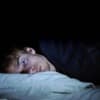Using Olanzapine for sleep may be an option for some people suffering with severe insomnia or sleep deprivation. However, like most medications given off-label for sleep disorders, there are various pros and cons to consider when using Zyprexa for sleep.
Olanzapine is one of the less common medications considered for patients dealing with sleep disorders. Using atypical antipsychotics for insomnia can have several complex side effects, which may be difficult to handle, and make other symptoms worse.
However, studies into substances like Olanzapine and sleep do indicate a connection between these drugs and the potential for relief from insomnia.
Here’s what you need to know if you’re asking, “Can Olanzapine help you sleep?”
Olanzapine and sleep: What is Zyprexa for sleep?
Olanzapine, otherwise known as Zyprexa, belongs to a class of drugs known as “antipsychotics”. These medications are typically described for the management of psychotic disorders such as schizophrenia or bipolar disorder. In some cases, Olanzapine may also be given alongside other medications like lithium for acute short-term treatment.
Olanzapine works by opposing the actions of dopamine and serotonin in the brain – two of the major chemical messengers responsible for many of our feelings and actions. However, this substance can also have a number of other effects, including the ability to minimize the symptoms of insomnia.
For patients with issues like bipolar disorder and schizophrenia, disturbance in sleep quality can be a major symptom. Drugs like Olanzapine can help to get patients back on track with the correct sleep cycle. According to studies, the substance can help to improve sleep continuity, thereby also reducing various symptoms of depression.
Can Olanzapine be used for sleep?
Because Olanzapine can help to calm various symptoms of psychotic disorders, like feelings of nerves or irritation, it can also help with a multitude of sleep disorders. Indeed, many people given this medication will experience side effects like sleepiness.
To further look into the potential of Olanzapine for sleep, studies have explored the impact on sleep continuity and short wave sleep cycles in volunteers also taking SSRI treatments. These studies have produced varied results.
In one report published by Sleep Science, researchers studied 40 chronic insomnia patients after a year of treatment with two atypical antipsychotic drugs (quetiapine and olanzapine).
The report used 5 consecutive nights of actigraphy, which means using a muscular movement tracker. The researchers also used the Pittsburgh Sleep Quality Index to measure subjective and objective sleep quality.
The researchers found the total PSQI scores reported by the patients improved significantly with both groups, while the actigraphy results showed significant improvement only in the group taking quetiapine. In the light of this, the researchers suggest that olanzapine and quetiapine could have benefits for managing chronic insomnia.
Not only does olanzapine improve sleep continuity, ensuring you can stay asleep for longer when you drift off at night, but it could have a positive impact on slow wave sleep too. Slow wave sleep is a crucial part of your sleeping pattern, otherwise known as deep sleep.

Olanzapine dosage for sleep
Often, when atypical antipsychotics and antidepressants are prescribed for sleep and insomnia treatment, the dosage will be different to what you might take if you were using these substances as normal. The best way to answer the question “How much olanzapine should I take to sleep?” is to speak to your doctor.
Your medical healthcare practitioner will be able to prescribe an appropriate dosage based on your symptoms, any other medications you’re taking, and the potential you may have for side effects.
According to one study, 10mg could be an effective dosage for those taking Olanzapine for sleep. The study found the changes in sleep patterns measured by polysomnography were more significant for women taking 10mg of Olanzapine, than for men.
This could be because Olanzapine influences sleep through 5-HT receptors, the gene for which is located in the X chromosome, suggesting a potential difference between genders.
Your doctor may therefore suggest a different dosage of Olanzapine for your sleep issues, depending on whether you’re male or female.
How long does olanzapine take to work for sleep?
Keep in mind, drugs like Olanzapine take time to work. It’s difficult to know for certain how long it will take before you begin to see results. Some people may not respond to this medication at all. While you may feel calmer and more relaxed when you first begin taking Olanzapine, it could take between 2 or 3 weeks before you see any significant results with your sleep.
Notably, most doctors will recommend taking this medication at night before you go to sleep, as it can cause feelings of drowsiness relatively quickly. This may make it easier to fall asleep.
Which antipsychotic is best for sleep?
Studies into the potential of olanzapine for sleep indicate this substance could be beneficial as an atypical treatment for insomnia. However, as the research we mentioned above shows, quetiapine is considered more effective, when regarding the individual reported sleep quality.
Your doctor will be able to provide advice on which antipsychotic medication is best for you, if they’re suggesting one of these pills to solve your sleep problems. However, it’s worth noting antipsychotics aren’t always the best choice for sleep issues.
The evidence available to demonstrate the potential benefits of antipsychotics for sleep are still limited, and there’s little evidence indicating they actually help people to fall and stay asleep long-term.
Notably, antipsychotics also have a number of potential side effects – some of which are more dangerous than others.
Various patients who use antipsychotics stop because of symptoms like:
- Increased levels of cholesterol
- Dizziness, confusion, drowsiness, and higher risk of falls
- Weight gain
- Diabetes
- Muscle tremors and spasms
- Blood clots
- Worsening depression
- Restlessness
- Feelings of weakness
- Difficulty walking
Some people taking Olanzapine may also report more problems falling asleep or staying asleep than they had before they started taking the medication. This intensifies feelings of restlessness, constipation, and other side effects prompted by the pill.

Can olanzapine help you sleep?
The studies available on olanzapine and sleep indicate there is potential for this medication to assist with sleep problems, but further investigation is necessary.
In general, it’s most likely your doctor will advise the use of an antipsychotic for insomnia if you are already taking this kind of medication for something like bipolar disorder or schizophrenia.
If you have a significant mental illness already, olanzapine can help to address this problem, while simultaneously assisting with sleep.
You may also be offered this medication as a treatment for insomnia if other treatments for your condition have not been successful, and the risk of sleep deprivation is greater than the risk of the medication.
Typically, you should to try other strategies to improve your sleep pattern before you switch to olanzapine. For instance, you could consider:
- Alternative short-term relief: Various methods of short-term relief for insomnia are available from your doctor and over the counter in some cases. Melatonin can be a more natural way to counteract sleeping problems, as can some allergy pills.
- Improving sleep hygiene: Working on your sleep hygiene and making sure you follow a consistent schedule for sleep each night can help to improve your chances of falling and staying asleep, when you most want to.
- Behavioral therapy: A therapist with specialist skills in treating insomnia can sometimes help you to overcome this issue. Pills are suitable usually for treating symptoms of insomnia, but they don’t always help with the underlying cause.
Should you take Olanzapine for sleep?
Taking Olanzapine for sleep may be an option for you in certain circumstances, but most of the time your doctor will recommend other options first. Before you begin taking this medication, it’s important to speak to your doctor about your symptoms in depth.
If you’ve been struggling with insomnia for a while, this could be a sign of an underlying medical problem preventing you from getting a good night’s sleep. When you’re struggling with issues like sleep apnea and restless legs syndrome, olanzapine won’t help with these.
If olanzapine for sleep isn’t the right route for you, your doctor will be able to suggest some alternative options.
Siestio. Sleep Matters.
Now read these:
—Z-drugs for insomnia
—Mirtazapine for sleep
—TCA’s for insomnia
Medical disclaimer
You must not rely on the information provided on our website as an alternative to medical advice from your doctor or other healthcare professionals. For more information read our full disclaimer here.







